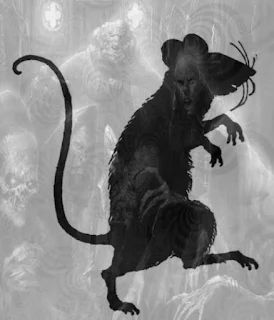One Do Wrong All Get Punished Short African Folktale
African folktales teach the right words for justice are vital. African folklore brings people together, read and study more folktales, and short stories from the African continent.
Three things to remember when reading African Folklore stories.
❤ ❤
❤
Folklore storytelling is the most ancient art form of the African Community.
Time and effort must be given to becoming an African folklore storyteller, just as any artist must give time and effort to developing their skill.
African folklore is as old as Africa herself with a deep appreciation for antiquity expressed in artistic form.
African folklore storytelling as a form of teaching.
African folklore storytelling has long been accepted as a form of teaching to be defined as a series of events told in such a way that it moves the emotions and the intellect. African folklore storytelling is a spiritual legacy passed down from one generation to another.
Just as someone expresses their ideas and the form of music, painting, dance and sculpture folklore takes the ideas of an ancient story and creates with words a picture that enchants the listener with a rich auditory environment.
Many African people are born storytellers and spend many long hours practicing their art. Not everyone can acquire the art of folklore storytelling imagery, but for the beginner one should think of folklore storytelling as a heritage passed on from traditional storytellers and dig deep within the ancient storyteller that lies within us all.
African folklore storytelling can turn a shy awkward self-conscious boy or girl into storytellers who captivates and win’s the heart of their listeners. African folklore storytelling can help those afraid of public speaking by relating the value of the story and discover the roots within themselves on how to tell a story like a skilled crafts person.
The folklore story of One Do Wrong All Get Punished, mouse learns a hard lesson that when you do a bad deed and do not own up to it, the entire community is punished even though they are innocent and you are the guilty one.
 |
| Evil little mouse |
One Do Wrong All Get Punished Short African Folktale.
One day, as the ancestors say, the Mouse cut to pieces the clothes of Mongueno the tailor. Mongueno went to the great judge, the Baboon, and accused the mouse of the deed.
With these words Mongueno said, "In this manner I come to you great Baboon, the Mouse has torn my clothes, but denies it and accuses the Cat; the Cat protests likewise her innocence, and says the Dog must have done it; but the Dog denies it also, and declares the Wood has done it; and the Wood throws the blame on the Fire, and says, 'The Fire did it;' the Fire says, I have not, the Water did it;' the Water says, 'The Elephant tore the clothes;' and the Elephant says, 'The Ant tore them.
A great dispute has arisen among them. Therefore, I, Mongueno, come to you for help great Baboon. The Baboon thought a while and said “Assemble the people for a trial and try them, in order beginning with the mouse." But during the trial, they made the same excuses which had been mentioned by Mongueno, each one putting the blame upon the other.
So the Baboon did not see any other way of punishing them, but through making them punish each other; he, therefore, said, "Mouse, pay Mongueno for the destroyed clothes." The Mouse, however, pleaded not guilty.
The Baboon said, "Cat, bite the Mouse." She did so.
He then put the same question to the Cat, and when she pleads not guilty, the Baboon called to the Dog and said: "Here, bite the Cat."
In this manner, the Baboon questioned them all, one after the other, but they each denied the charge. Then he addressed the following words to them all, "Wood, beat the Dog. Fire, burn the Wood. Water, put out the Fire. Elephant drink the Water. Ant, bite the Elephant in his most tender parts." They did so, and since that day, they cannot any longer agree with each other.
Through this judgment, Mongueno was happy, and addressed the Baboon saying "Yes! Now I am satisfied and with all my heart I thank you, Baboon, because you argued on my behalf, and gave me payment through justice."
Folklore storytelling is the most ancient art form of the African Community.
Time and effort must be given to becoming an African folklore storyteller, just as any artist must give time and effort to developing their skill.
African folklore is as old as Africa herself with a deep appreciation for antiquity expressed in artistic form.
More short folklore stories from Africa to make you fall in love with myths and legends again from the motherland.
- Why the bunny rabbit has wiggly slits for a nose
- Love Takes No Less Than Everything Marriage Folklore
- Hunters Attack Cowards Tell the Story
- One Do Wrong All Get Punished
- Mighty Little Hedgehog
- Blackman and White Snake Folklore Story


